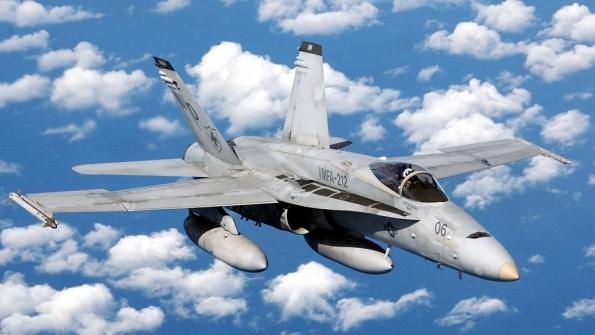
The U.S. Navy has expedited its component workshare agreement with an Air Force aviation depot because of coronavirus-related workforce shortages.
Fleet Readiness Center East (FRCE) located in North Carolina was initially scheduled to begin working on a Boeing F-18 cabin safety valve later this year while the Oklahoma City Air Logistics Complex’s test chamber was closed for scheduled maintenance. But the time line was accelerated when Tinker AFB in Oklahoma had a significant number of workers unavailable due to COVID-19 risk mitigation efforts.
The cabin safety valve is an integral part of the aircraft’s environmental control system, Mary Linton, an aerospace engineer on the Gas Turbine Compressor-Pneumatics Fleet Support Team at FRCE, said in an April 27 statement. The valve is a component on both legacy F/A-18 Hornets and newer Super Hornets that acts as a backup to maintain cabin pressure above 23,000 ft. The part also serves as a supplement to the cabin air pressure regulator when the aircraft is in a rapid dive.
“The original intent of bringing this workload to FRCE was to support Tinker Air Force Base through a major support equipment rework effort,” Linton said. “All of the great effort that went into establishing this capability proved even more critical to maintaining the readiness of the F-18 fleet as we navigate through the COVID-19 crisis.”
The FRCE team was prepared to begin repairing, checking and testing the cabin safety valves in May, beginning with 20 per month before getting to a monthly rate of 40 by July, said John Miller, a planner and estimator with the Maintenance, Repair and Overhaul Logistics department at FRCE.
To date, FRCE has completed 18 of the 40 units inducted so far, with plans to funnel 10 more into the pipeline. Once those first units are completed, the team must wait for additional valves to maintain the workflow.
“The availability of components is still in flux due to COVID-19 and other factors, but the transition should move smoothly,” Miller said.





